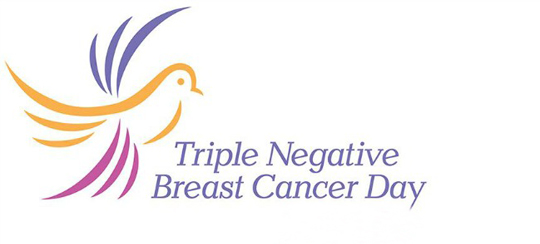By Christine Long : March 3rd, 2016
“The nature of this disease cries out for more attention and research,” said Dr. Iman Mohamed, UT professor and chief of the Division of Hematology and Oncology. “We hope to educate and empower.”  An
estimated 15 percent of all diagnosed breast cancers are triple
negative breast cancer tumors. This type lacks the three receptors
commonly targeted in chemotherapy — estrogen, progesterone and human
epidermal growth factor receptor 2. An
estimated 15 percent of all diagnosed breast cancers are triple
negative breast cancer tumors. This type lacks the three receptors
commonly targeted in chemotherapy — estrogen, progesterone and human
epidermal growth factor receptor 2.The disease is often hard to diagnose because it is common in younger women and not always detected in mammograms. “The receptors known to fuel breast cancer simply aren’t present,” Mohamed said. “Compared to other types of breast cancer, triple negative breast cancers are usually more aggressive and not responsive to targeted therapeutic drugs. Patients have a higher risk of recurrence and a shorter survival rate.” Topics for the “A Different Shade of Pink” program include medical updates related to treatment options and clinical trials, as well as emotional, intimacy and survivorship issues. UTMC patient Melissa Paskvan of Toledo was diagnosed with triple negative breast cancer in 2009 and has been in remission for six years. “I found a lump by accident while scratching an itch at the age of 41,” Paskvan said. “My heart sunk. I knew it was cancer, but I had no idea it would be this rare form. “I went through a lumpectomy, nearly four months of chemotherapy, and 33 rounds of radiation,” she said. “At 48 years old, I am a survivor. I am happy and relieved to have made it past the three-year mark. I only hope my story offers hope to newly diagnosed patients.” To learn more about Paskvan’s story and how she raises money for triple negative breast cancer research, read her blog at mlsspaskvan.blogspot.com. http://utnews.utoledo.edu/index.php/03_03_2016/ut-shines-light-on-difficult-to-diagnose-aggressive-type-of-breast-cancerhttp://utnews.utoledo.edu/index.php/03_03_2016/ut-shines-light-on-difficult-to-diagnose-aggressive-type-of-breast-cancer |
Taking you through my Journey to bring much awareness to Breast Cancer and that Early Detection is key to survival.
I promise
"I promise, Suzy... Even if it takes the rest of my life." -Nancy G. Brinker, Founder of Susan G. Komen for the Cure
What is TNBC
WHAT IS TRIPLE NEGATIVE BREAST CANCER?
Just in recent years, Triple Negative Breast Cancer (TNBC) has sparked interest in the news where instead of calling the tumor as ER-negative, PR-negative, and HER2-negative; researchers began using the shorthand term, "Triple Negative," dubbed the "new type" of breast cancer. Being Triple Negative, you don't have a targeted therapy and your only treatment option is chemotherapy.
Triple Negative Breast Cancer is seen in about 15% of all breast cancers. TNBC is a very aggressive cancer that tends to strike younger women, pre-menopause, especially among African-American women and women who have BRCA1 mutations. The tumor tends to be fast growing and is less likely to show up on an annual mammogram. TNBC is more likely to metastasis early on; has a high rate of recurrence in the first 2-3 years from diagnosis and has a poorer prognosis than other types of breast cancer due to lack of specific, targeted treatment for TNBC.
Sunday, March 6, 2016
UT Shines Light on Difficult to Diagnose, Aggressive Type of Breast Cancer
Total Pageviews


